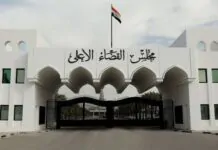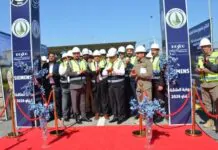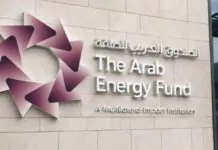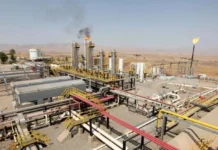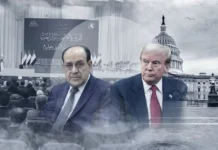Tishwash: Rafidain Bank is preparing to distribute Eid gifts to more than 50,000 of its most engaged users.
Rafidain Bank is preparing to distribute Eid gifts to more than 50,000 customers who are the most engaged in using electronic cards to save and shop instead of using cash.
Your Eidiya is on us… Rafidain Bank is preparing to distribute Eidiya to more than 50,000 customers, the most engaged users of electronic cards for saving and shopping instead of cash.
In a qualitative step aimed at supporting the culture of electronic payment and encouraging citizens to abandon traditional cash transactions,
Rafidain Bank is launching the “Your Eidiya is on Us” campaign to coincide with Eid al-Adha. The campaign includes cash rewards for thousands of customers who use their e-cards for purchases.
This initiative aligns with the Prime Minister’s directives urging banks and payment companies to develop effective incentive mechanisms that contribute to accelerating the transition to a cashless digital economy and fostering a culture of savings and the smart use of modern banking tools.
The bank plans to distribute Eidiya gifts to more than 50,000 active customers using electronic cards, according to a structured regulatory system that adopts precise standards of fairness and transparency.
Rafidain Bank… Towards a digital society and banking services worthy of citizens’ trust. link
************
Tishwash: Hidden fingers are tampering with the relationship between Baghdad and Erbil… Efforts to abort Al-Sudani’s second term before it matures –
Political researcher Nabil Al-Azzawi revealed on Wednesday (June 4, 2025) that there are political parties working behind the scenes to stir up tensions and disputes between Prime Minister Mohammed Shia Al-Sudani and the Kurdish forces in Kurdistan, in an attempt to block the renewal of his term for a second term.
Al-Azzawi told Baghdad Today, “There are political parties that do not want the elections scheduled for November 11 to take place, and they are seeking by all means to place artificial obstacles in the way of the government.”
He pointed out that “these parties are working to undermine the growing trust between al-Sudani and the Kurdish forces, as they believe that an understanding between the two parties strengthens al-Sudani’s chances of remaining in office for a second term.”
He added, “Since assuming office, the Prime Minister has placed the relationship between Baghdad and Erbil at the top of his priorities. His first move was toward the Kurdistan Region, where he launched the ‘Sustainable Solutions’ initiative as an alternative to the policy of recurring crises. This has worried some forces that do not see a solution to these issues in their best interest.”
Al-Azzawi explained that “Al-Sudani is making clear strides toward removing the outstanding issues,” noting that “an expanded technical meeting is expected to be held in Baghdad, with the attendance of an official delegation from the region, to discuss a number of outstanding issues, including the push for the enactment of an oil and gas law, which would end many crises and open the door to radical solutions regarding the disputed areas and Article 140 of the constitution.”
The political researcher emphasized that “leaving these issues unresolved threatens the political stability Iraq currently enjoys, especially in light of the complex regional circumstances,” asserting that “inciting conflicts at this time only serves narrow agendas, while citizens today need services and development, not escalation and conflict.”
Al-Azzawi pointed out that “there are multiple internal parties, some of them from within the Coordination Framework, seeking to obstruct al-Sudani’s rapprochement with the Kurds, due to their awareness that the support of Kurdish and Sunni forces puts him in a strong position to secure a second term, something these parties do not desire, as they are working to shuffle the political cards to preserve their own interests.”
Observers believe that since assuming the premiership in October 2022, Prime Minister Mohammed Shia al-Sudani has sought to adopt a comprehensive de-escalation policy and prioritize dialogue to resolve outstanding issues, particularly between the federal government in Baghdad and the Kurdistan Regional Government.
His first official visit was to Erbil, a clear indication of his desire to open a new page with the region.
During his tenure, Al-Sudani focused on thorny issues such as the oil and gas law, disputed territories, and the implementation of Article 140 of the constitution. These issues have been a source of tension between the two sides for years.
As the local elections approach and talk escalates about the possibility of renewing al-Sudani’s term for a second term, a counter-political movement has begun to emerge, seeking to undermine this process by re-escalating tensions with the region and raising contentious issues as part of the power struggle between political forces within and outside the Coordination Framework. link
************
Tishwash: US calls on Baghdad to negotiate quickly: Iraq’s independence from Iranian influence comes through Kurdistan’s gas
The US State Department considered, on Thursday, that the recent agreements concluded by the Kurdistan Regional Government with American companies to develop natural gas production constitute an important step towards addressing the chronic imbalance in the Iraqi energy sector, calling on Baghdad and Erbil to urgently coordinate to accelerate project implementation and enhance Iraq’s energy independence.
A ministry official told Shafaq News Agency, “The United States believes that Iraq will be more stable and sovereign by achieving energy independence and distancing itself from Iran’s harmful influence.”
He added, “The agreements recently signed by Kurdistan Regional Government Prime Minister Masrour Barzani with American companies to expand natural gas production in Iraqi Kurdistan support this goal,” noting that “these projects, whether in the region or across the rest of the country, are in the interest of all Iraqis, especially in light of the ongoing electricity crisis.”
The US official continued, “We encourage Baghdad and Erbil to work together to begin gas production as soon as possible.”
The Kurdistan Regional Government announced the signing of two agreements with American companies HKN Energy and WesternZagros to develop the Miran and Topkhana-Kurdimir fields in Sulaymaniyah Governorate, with a total value estimated at approximately $110 billion, in one of the largest deals in the region’s energy sector.
The agreements aim to exploit natural gas resources more widely to meet the region’s and Iraq’s electricity needs and reduce reliance on Iranian gas imports.
The move sparked protests from the federal government in Baghdad, with the Iraqi Oil Ministry describing the agreements as “null and void,” noting that natural resource management falls solely within the purview of the federal government.
Investment efforts in Iraq’s energy sector face recurring legal and political challenges, given the absence of a federal law regulating the management of natural resources between the central government and the region.
The energy crisis is one of the most significant challenges facing Iraq, with most of the population suffering from frequent power outages, which worsen during the summer months. Iraq relies heavily on gas imported from Iran, at a time when supplies are affected by political and economic factors, most notably regional tensions and mounting debt issues.
Relations between Baghdad and Kurdistan have recently become strained, particularly after the signing of the gas contract with Washington. The Iraqi Ministry of Finance announced it would halt funding for the salaries of Kurdistan Region employees until May 2025, citing the region’s exceeding its budget share and its failure to deliver oil and non-oil revenues to the federal government.
In contrast, the Kurdistan Regional Government (KRG) considered the decision politically motivated and a violation of the constitution and Federal Court rulings. The KRG asserted that Baghdad had failed to honor its financial commitments despite Erbil’s previous commitments, and that the decision directly impacts more than 1.2 million employees ahead of Eid al-Adha. link


